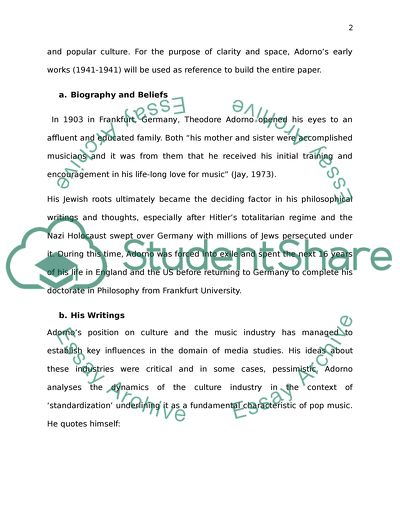Cite this document
(Adorno and Criticism of Art Term Paper Example | Topics and Well Written Essays - 1894 words, n.d.)
Adorno and Criticism of Art Term Paper Example | Topics and Well Written Essays - 1894 words. Retrieved from https://studentshare.org/culture/1567413-is-adorno-being-elitist-when-he-criticises-the-culture-industry
Adorno and Criticism of Art Term Paper Example | Topics and Well Written Essays - 1894 words. Retrieved from https://studentshare.org/culture/1567413-is-adorno-being-elitist-when-he-criticises-the-culture-industry
(Adorno and Criticism of Art Term Paper Example | Topics and Well Written Essays - 1894 Words)
Adorno and Criticism of Art Term Paper Example | Topics and Well Written Essays - 1894 Words. https://studentshare.org/culture/1567413-is-adorno-being-elitist-when-he-criticises-the-culture-industry.
Adorno and Criticism of Art Term Paper Example | Topics and Well Written Essays - 1894 Words. https://studentshare.org/culture/1567413-is-adorno-being-elitist-when-he-criticises-the-culture-industry.
“Adorno and Criticism of Art Term Paper Example | Topics and Well Written Essays - 1894 Words”, n.d. https://studentshare.org/culture/1567413-is-adorno-being-elitist-when-he-criticises-the-culture-industry.


